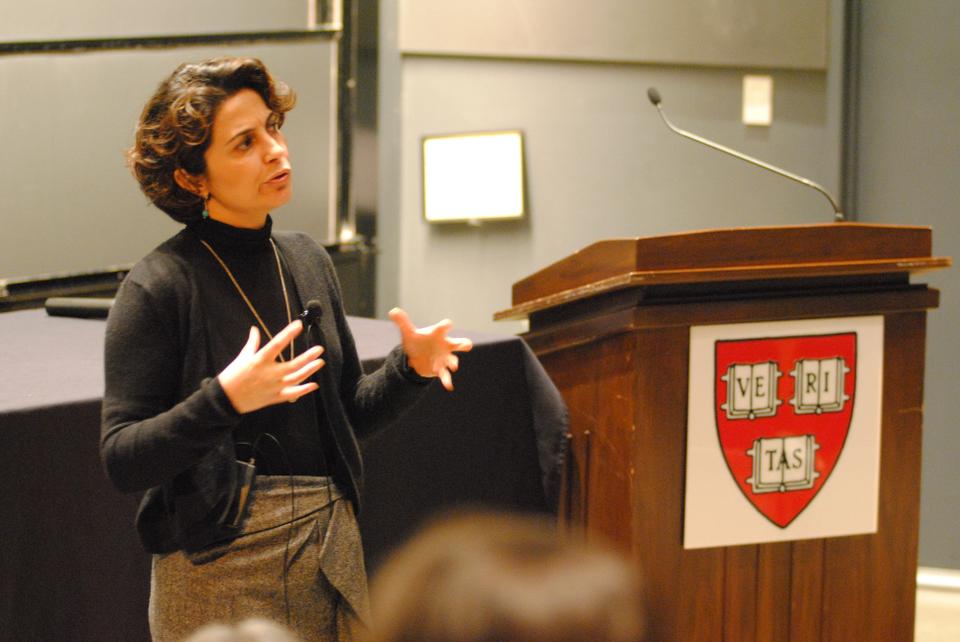
News
Summers Will Not Finish Semester of Teaching as Harvard Investigates Epstein Ties

News
Harvard College Students Report Favoring Divestment from Israel in HUA Survey

News
‘He Should Resign’: Harvard Undergrads Take Hard Line Against Summers Over Epstein Scandal

News
Harvard To Launch New Investigation Into Epstein’s Ties to Summers, Other University Affiliates

News
Harvard Students To Vote on Divestment From Israel in Inaugural HUA Election Survey
Exiled Iranian Reporter Speaks to Undergraduates

Nazila Fathi, an Iranian journalist for The New York Times and other publications, discussed her perilous experiences as a reporter and her eventual exile from her homeland in a speech before more than 50 students, faculty members, and local residents on Thursday evening.
Fathi spoke about how she came to be a reporter in such tumultuous territory.
“In 1991, many reporters came to Iran to report on an earthquake,” Fathi recalled. “They needed a translator.... That was the beginning of my career as a journalist. The journalism bug bit me.”
She recounted numerous anecdotes of life as a reporter under an oppressive regime.
“There were restrictions, there was red tape. There were times when my press card was revoked. There were dozens of social stories that the government didn’t care about,” Fathi said.
In June 2009, Fathi reported on the controversial Iranian election, in which incumbent president Mahmoud Ahmadinejad defeated reformist candidate Mir-Hossein Mousavi. Dispute over the legitimacy of the election sparked widespread revolt.
“I saw the most amazing scene that I have ever seen in my life,” Fathi said. “The 6-mile street was packed with people, and the square was packed as well. Three million people had come despite government warning.”
When government officials noticed Fathi’s extensive reporting on the protests, she found herself under surveillance and began receiving death threats.
“One of those days I was going out, I received a call from someone who said, ‘Nazila, they have identified you and they have snipers,’” Fathi said. “I still went out that day, because it was impossible not to.”
For the safety of her family, she decided to leave Iran—temporarily, she thought.
“When I left Iran, I brought only a few t-shirts. I always expected to go back,” Fathi said.
But after extending her time out of the country repeatedly, Fathi said she still does not feel safe enough to return.
She spent 2011 as a fellow at the Nieman Foundation for Journalism at Harvard and is currently a fellow at Harvard’s Shorenstein Center on the Press, Politics, and Public Policy.
Thursday’s talk was sponsored by the Harvard Writers at Work lecture series, which “emphasizes that Expos is not just a class that you’re taking, but something that has many different applications in the real world—something that you can be passionate about,” said Andrea Pitzer, a journalist who founded the Nieman Storyboard website.
Victoria Zhuang ’15 agreed that the lecture was “expanding.”
“This helped me cultivate awareness of events around the world,” Zhuang said.
Want to keep up with breaking news? Subscribe to our email newsletter.
